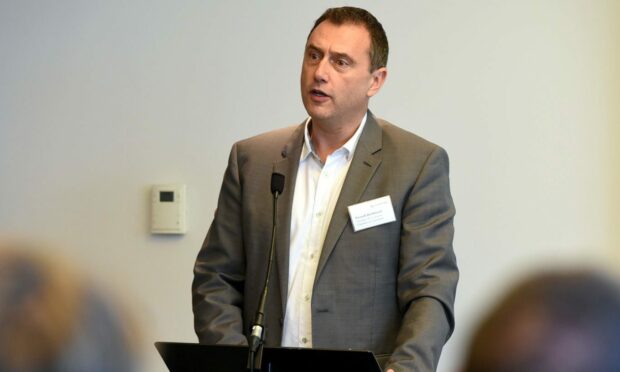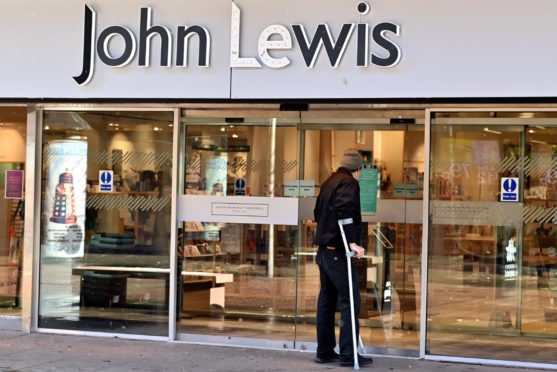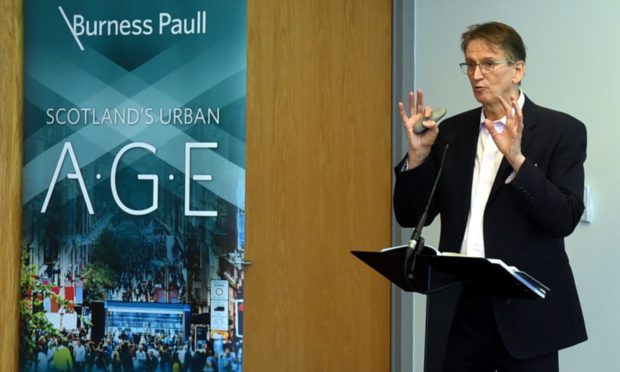An agenda-setting report focused on the future of Scottish cities is to be revised amid warnings that decisions taken in the next Holyrood term risk leaving the centre of Aberdeen and other cities “urban deserts”.
Aberdeen And Grampian Chamber Of Commerce and its Edinburgh and Glasgow equivalents have ordered the refresh of their influential Scotland’s Urban Age research in light of the economic impact of the pandemic and the renewed drive to reach net zero carbon targets.
Leaders hope it will help define the role their cities can play in the country’s economic recovery after coronavirus.
Research in light of fears high streets ‘may never recover’
It comes following speculation that the widespread working from home practices adopted over the last year will lead to permanent change, leaving – their researchers claim – “extensive office floorspace in city centres surplus to requirements” and fears hard-hit high streets “may never recover”.
In Aberdeen, property owners have already begun converting vacant office space for other uses while retail giants such as John Lewis and Debenhams – once thought evergreen – have announced closures.
The turmoil led The Press And Journal and Evening Express to launch the Save Our Shops campaign, while thousands have signed petitions calling for a change of heart.
Published in 2018 with Glasgow School Of Art, the initial 100-page Urban Age document set out strategic recommendations which were hoped to establish the three cities as “leading players” on the global stage.
The revised research will consider transport links once more, as well as employment, culture and housing – and how businesses, the public sector and charities can create a new, sustainable agenda to develop the three cities and the regional economies which satellite around them.
Forecasters predict more than four in every five additional jobs created in Scotland in the next five years will be generated by Aberdeen, Glasgow or Edinburgh.
City centres ‘finely balanced eco-systems’
Chief executive of Aberdeen And Grampian Chamber Of Commerce, Russell Borthwick, said: “Cities centres have been hit hard by the restrictions put in place by governments to manage the Covid-19 pandemic.
“There is a real risk that decisions being taken now and any related changes of policy direction could see the places that should be the beating heart of our communities become urban deserts of the future.
“They are finely balanced eco-systems of retail, culture, hospitality, residential and offices with people at their heart.
“If any of these are out of balance, then the others are likely to fail. Scotland’s Urban Age II aims to ensure this scenario is avoided.”
His Glaswegian counterpart, Stuart Patrick, said the pandemic had thrown up “fundamental changes” in Scotland’s cities and the second Urban Age work would help the chambers – as well as government decision-makers – “avoid impulsive assumptions about the way ahead”.
When the 2018 report was published, Glasgow School Of Art’s head of urbanism, co-author Professor Brian Evans warned change was needed against the risk of Edinburgh and Glasgow becoming “super dominant” within the Scottish economy.
He is to work on the revision alongside the chambers, law firm Brodies and accountancy firm Anderson Anderson And Brown.
Challenges and opportunities presented by Covid ‘immense’ but patience required, city centre expert warns
Last night, Prof Evans said: “It is now widely recognised that Covid-19 and climate change will have a profound effect on our lives for years to come.
“By the end of 2021, and to paraphrase Churchill, we will not be at the end of understanding their effects, but we might be at the beginning of understanding what we need to do.
“We already know that Covid-19 has accelerated societal change, and this will only gather pace as societies finally gear-up to deal with the climate emergency.
“We know that the young and the less fortunate have been hardest hit and that the development dynamics of cities, their neighbourhoods and surrounding towns are in flux as a consequence of working patterns, online retailing and mobility demands.
“We have yet to properly understand the cultural consequences.
“The challenges of our zeitgeist are immense, as are the opportunities they present if we confront them imaginatively, constructively and collectively.
“To do so without severe collateral consequences will require patience and a calm approach.”
Chamber leaders are encouraging political parties to back their new recommendations, not to be published until the autumn, with investment.
Scots voters will head to the polls for the Holyrood election a week today.


